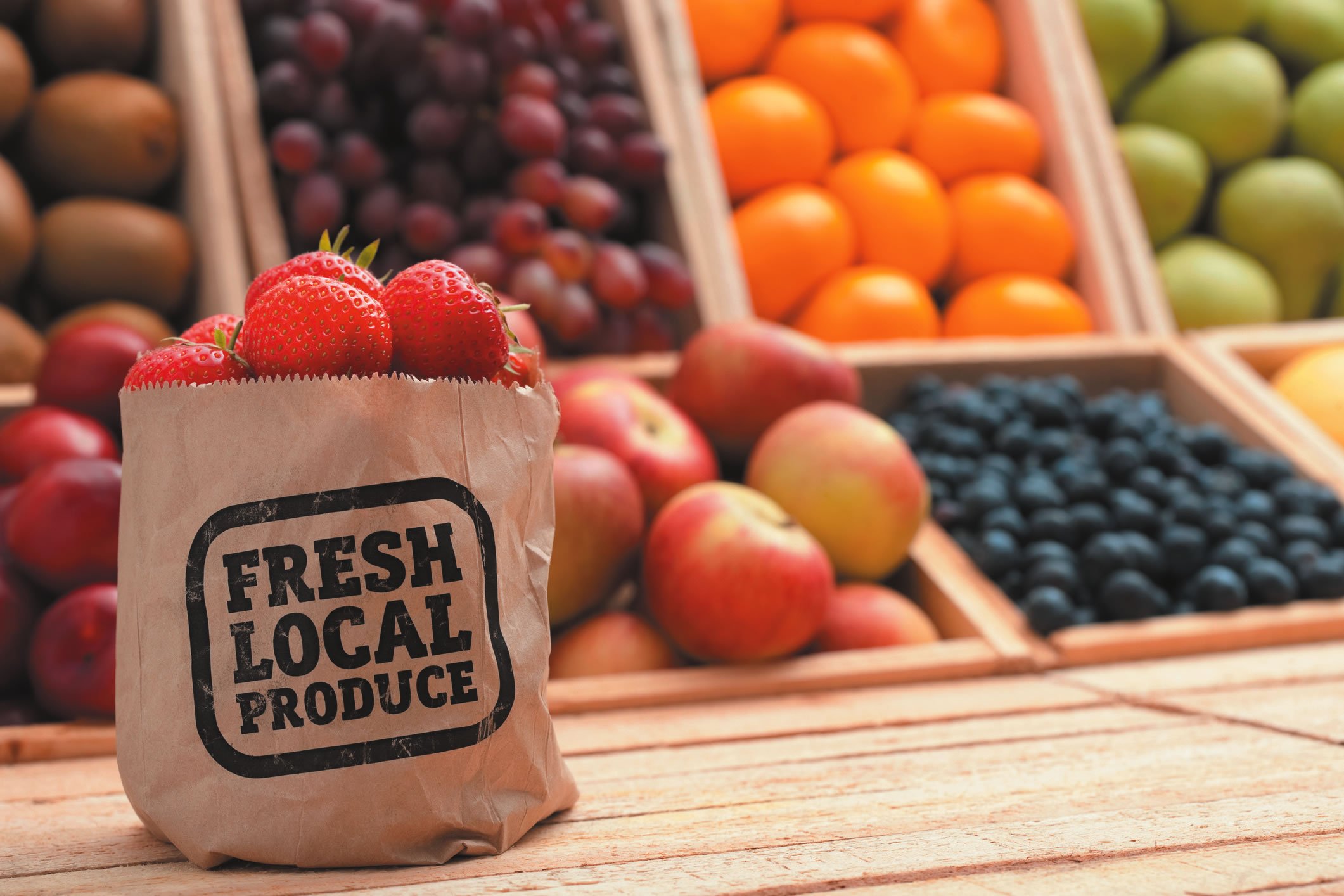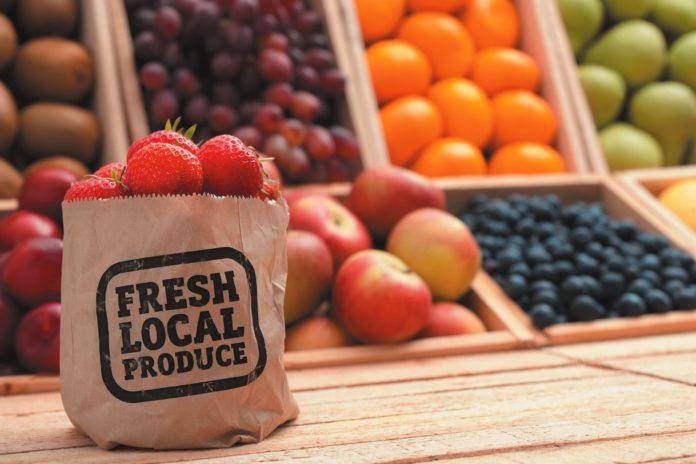Image © mrPliskin | Getty Images

Throughout the summer and fall, farm stands display locally-grown fruits and vegetables, and supermarkets offer fresh seasonal produce, along with organic, conventional, imported, and frozen selections. Understanding the variables associated with these options may make deciding what to buy a little easier.
Keeping it Close to Home? Locally grown, seasonal produce, whether sold at farm stands, farmers markets, or the local grocer, can be an attractive option. Buying local cuts down on the environmental impact of transportation, and may put money into the local economy, but it does not necessarily impact nutrition. Fruits and vegetables are often picked before they reach peak ripeness—while they are firmer and less likely to be damaged or rot during shipping. Since it doesn’t have to travel far, locally-grown, seasonal produce is often allowed to ripen more fully, which is a big plus for both quality and flavor. Ripeness can impact nutritional value as well, but this doesn’t mean local produce is necessarily more nutritious. “Many factors influence nutrient content, including seed variety, soil, and elevation,” says Alice H. Lichtenstein, DSc, director and senior scientist at Tufts’ Cardiovascular Nutrition Laboratory, and executive editor of Tufts Health & Nutrition Letter. “Fruits and vegetables can lose nutrients as they sit in transit or on display, particularly if not refrigerated, such as on a farm-stand table.”
Farm stands are not the only place to find local, seasonal options. “Many supermarkets carry local produce, and there are plenty of seasonal choices,” says Lichtenstein. “Produce in supermarkets is temperature controlled, and usually fresh because turnover rates are managed. Seasonal produce at supermarkets is also generally quite affordable.”
Organic Options: It’s important to understand that not all local food is organic, nor is all organic food local. Some people seek out organic products to avoid potential health and environmental effects of agricultural chemicals, but organics do not have a proven nutritional edge over conventional produce. Organic products are, as a general rule, more expensive than conventional, a factor to consider when making grocery-purchasing decisions. “People who eat more fruits and vegetables have better health outcomes, regardless of whether they choose organic or conventional,” says Lichtenstein.
Foraging in the Freezer: Local produce bought directly from the farmer, or even from a supermarket, is not always an option. “Frozen produce is an excellent choice because today’s flash freezing technology is used to freeze fruits and vegetables that are picked at peak ripeness,” says Lichtenstein. “Nutrient content is preserved in freezing, and nutrient loss is slowed.” While fresh produce can spoil within just a few days, leading to wasted food and wasted money, frozen food can keep for months while maintaining nutritional quality and, importantly, flavor. Canned and dried fruits and vegetables are also generally good choices, but compare Nutrition Facts labels to choose brands with the least sodium and added sugars.

Dont let the number of choices make produce purchasing confusing. Follow these tips to up consumption of these health-promoting foods:
-Eat more fruits and vegetables of any kind. Local and imported, fresh and frozen, organic and conventional are all good choices.
-Use fresh vegetables soon after purchasing to maximize nutrient content and prevent spoilage. Delicate foods like berries and greens will spoil more quickly. Produce with harder skin, such as carrots, cabbage, and apples, are more durable and last longer at home. Planning can help minimize food waste.
-Chill. Produce ripens more quickly when left at room temperature, but, once ripe, getting most types into a refrigerator (or freezer) can help preserve nutrients. A recent study published in the Journal of Food Science and Technology focusing on blueberries found that phytochemical content could be largely preserved by low temperature storage (in a refrigerator or freezer). Some produce, however, such as tomatoes and bananas, are better left at room temperature, according to the Produce for Better Health Foundation.
-Rinse (just about) everything. All produce should be rinsed with clean water before use to reduce risk of foodborne disease and remove pesticide residue. Hard produce can be scrubbed with a brush. Soap and special washes are not recommended. The only exception is pre-washed, bagged, greens, which the CDC recommends not be washed at home.
-Keep a fruit bowl. Having a bowl of fruit visible encourages more fruit intake, but can also lead to waste if the fruit spoils. Try having just a couple pieces of each type of fruit out at any one time (depending on your household size). This can help avoid over-ripening and food waste.
-Dont forget frozen. Pre-packaged frozen vegetables and fruits are at least as nutritious as fresh, and often less expensive, and they are available year-round.

























Keep up the good work! I used to get your paper newsletter, now I love your digital newsletter!
I feel very lucky during this strange pandemic time to be living in S.California with still so many choices for fresh, organic produce! And happy that they’ve allowed some Farmers markets to stay open!
Was perplexed that you don’t mention the benefit of maintaining decentralized food production, given the current breakdown in pork production, and recent crises with contaminated romaine lettuce, which seems to be produced in only one or two places. But then saw that this is just reissuing a piece from 2018. Shouldn’t you at least bring it up to date?
Very revealing is the short part of one short paragraph [“Rinse (just about) Everything”] regarding the harms of produce, especially and particularly lettuce/kale. Your philosophy on health is apparent: superfoods with occasional harms beats mildly healthy with no harms. Some people choose the latter.
I heard a sales pitch on the radio about a company called “balance of nature” that promises great nutrition with fruits and vegetables in a condensed form. Does that have the same nutritional value at eating fruit and veges in a regular way?
Looking forward to your insights in food !!